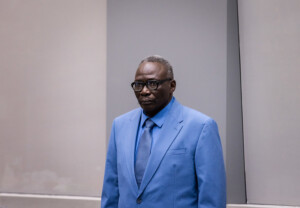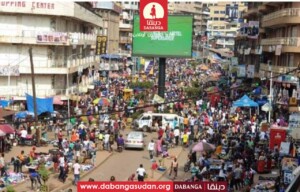Sudan’s Ambassador to Ethiopia recalled to Khartoum
Sudan’s Ambassador to Ethiopia, Jamal El Sheikh, has been summoned “to consult and identify options” after Ethiopia refused offers by Sudan to mediate in the ongoing and escalating conflict in the Tigray region*, Sudan’s Foreign Ministry has announced.
 Ethiopian refugees fleeing Tigray (WWFP Leni Kinzli)
Ethiopian refugees fleeing Tigray (WWFP Leni Kinzli)
Sudan’s Ambassador to Ethiopia, Jamal El Sheikh, has been summoned “to consult and identify options” after Ethiopia refused offers by Sudan to mediate in the ongoing and escalating conflict in the Tigray region*, Sudan’s Foreign Ministry has announced.
In a further sign of a souring of relations between the neighbouring countries, a statement on Sunday by Sudan’s Foreign Ministry criticised recent assertions by senior Ethiopian officials refusing offers of help, as well as remarks questioning Sudan’s impartiality on the grounds of its ‘occupation’ of the El Fashaga border region, which has been disputed ever since an agreement on border demarcation in 1902.
Last week, a statement by a spokesperson for Ethiopian Prime Minister Abiy Ahmed accused Sudan of “taking advantage of the Tigray conflict to enter Ethiopian territory”.
As reported by Radio Dabanga in December 2020, the Sudan Armed Forces (SAF) regained control of the area of Khor Yabis in El Fashaga El Sughra, off Barakat Norein in eastern El Gedaref on the border between Sudan and Ethiopia, after 25 years of absence.
At the time, the Radi El Fashaga Committee expressed its hope for the deployment of the armed forces in the entire El Fashaga locality and “the restoration of Sudanese sovereignty”.
Relations have also been strained over the past months following stalled three-way talks between Sudan, Egypt, and Ethiopia, as well as the country’s unilateral second filling of the Grand Ethiopian Renaissance Dam (GERD).
Yesterday’s Foreign Ministry statement points out that the initiative of Sudan’s Prime Minister Abdallah Hamdok, as part of his leadership, was “aimed at encouraging the Ethiopian parties to reach a comprehensive ceasefire and to engage in a process of comprehensive political dialogue to preserve Ethiopia’s unity and stability.”
* In November last year, war erupted in Ethiopia’s Tigray between the federal government in Addis Ababa and the Tigray People’s Liberation Front, after Prime Minister Abiy Ahmed accused Tigrayan troops of attacking federal military camps.
The war has caused a devastating humanitarian crisis, mostly in the northern region. According to the IOM Emergency Site Assessment (ESA) report of May, the conflict has displaced an estimated 1.9 million people in Tigray.
The UN refugee agency (UNHCR) said in its Tigray Situation Update of yesterday that according to humanitarian aid agencies like the UN World Food Programme (WFP) more than five million people in Tigray are in urgent need of food aid. About 60,000 Ethiopians have fled to Sudan and are camping in eastern towns bordering Ethiopia.











 and then
and then